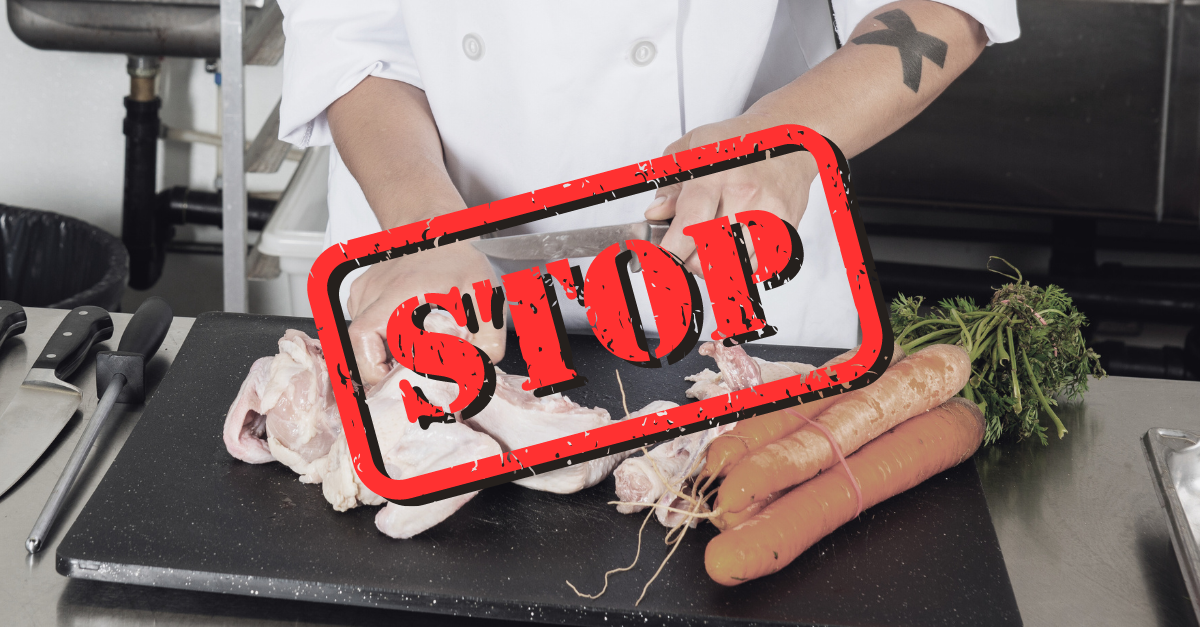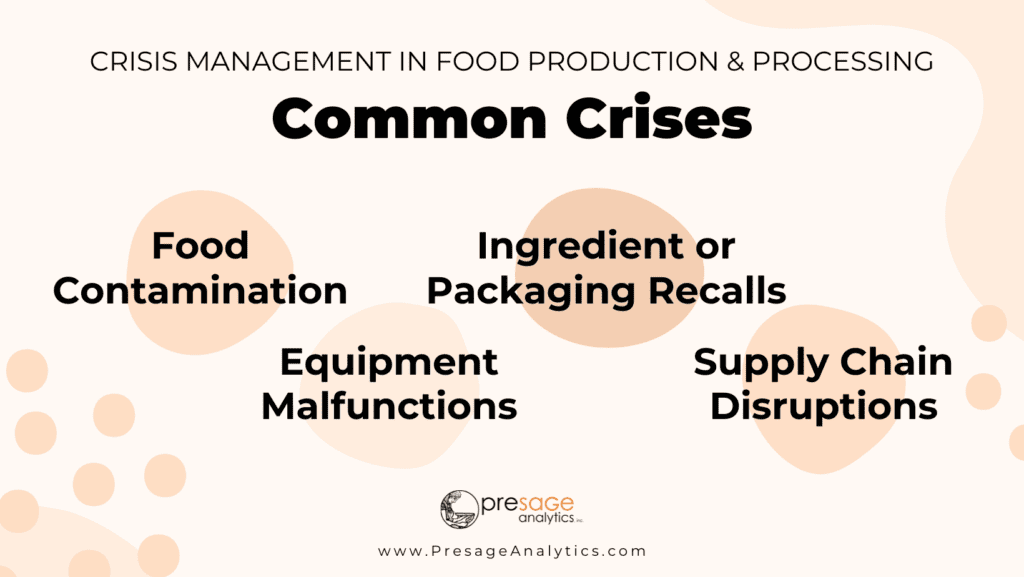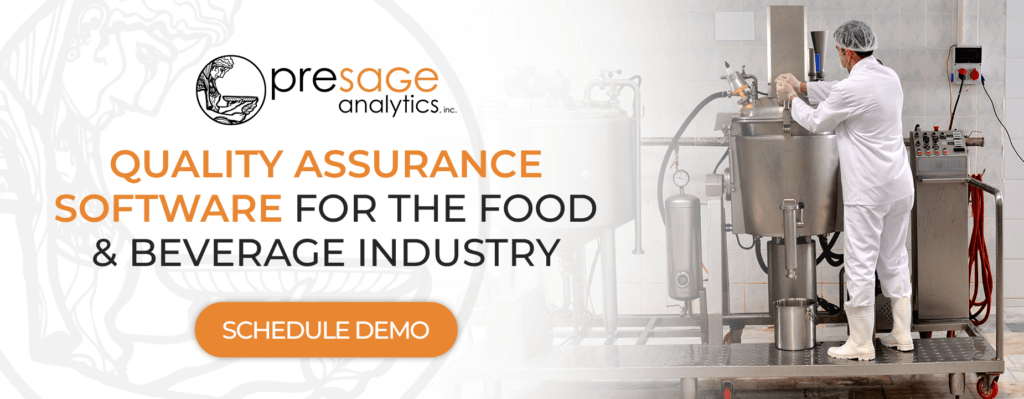Crisis Management in Food Production and Processing

Crises can happen at any time. Whether it’s contamination, equipment failure, or supply chain disruption, being unprepared can cost your business time, money, and reputation. A proactive approach to crisis management can help businesses better prepare for contaminations, recalls, and more.
What is Crisis Management?
Crisis management is the process of identifying potential risks, preparing for them, and responding quickly when they occur. The goal is to minimize damage and maintain consumer trust.

Common crises include:
- Food contamination (bacterial, chemical, or allergen exposure)
- Equipment malfunctions that affect production
- Ingredient or packaging recalls
- Supply chain disruptions that delay or halt production
Every business in food production must have a plan to address these issues, or they risk long-term damage.
Key Elements of an Effective Crisis Management Plan
Risk Assessment and Prevention
The first step in crisis management is identifying potential risks in your production process. Regularly inspect equipment, ensure proper sanitation, and monitor ingredient quality to reduce the chances of contamination. Preventing crises is always better than responding to them.
Communication Protocols
When a crisis hits, communication is critical. Develop internal communication strategies so your staff knows exactly what to do. Establish external protocols for informing regulatory bodies, suppliers, and customers quickly and transparently.
Action Plans and Quick Response
A detailed action plan for each possible crisis ensures a fast, organized response. Whether it’s a contamination issue or equipment failure, having clear steps can prevent chaos and limit the impact. Focus on protecting consumer safety and restoring production as soon as possible.
Learning from Real-Life Crises
Creating a crisis management plan isn’t the only thing you can do, it’s also important to learn from the experiences of others. In recent years, several food producers have faced major crises, often due to contamination or equipment failure. In contrast, businesses with strong crisis management systems can limit damage. Keeping up with industry news and cases like these help to highlight the importance of being proactive and prepared.
Developing a Culture of Crisis Preparedness
Effective crisis management goes beyond having a plan on paper. Your team must embrace a culture of preparedness. This means training employees regularly, updating safety protocols, and encouraging a proactive approach to food safety.
Every employee, from production staff to upper management, should understand the company’s crisis management plan and know their role. By making crisis preparedness part of your everyday operations, you’ll be more resilient and ready to respond when a crisis hits.
Presage’s Role in Crisis Management
Presage Analytics offers safety and quality management tools to help you monitor every aspect of production, from sanitation to ingredient testing.
Our platform provides:
- Real-time monitoring to detect early signs of contamination
- Automated alerts to notify staff of potential issues
- Detailed data for quick decision-making during crises
- And so much more!

With the right tools and a strong plan, you can be ready for anything. Let Presage Analytics help you prepare for any crisis. Schedule a demo today to learn how our software can support your business.





